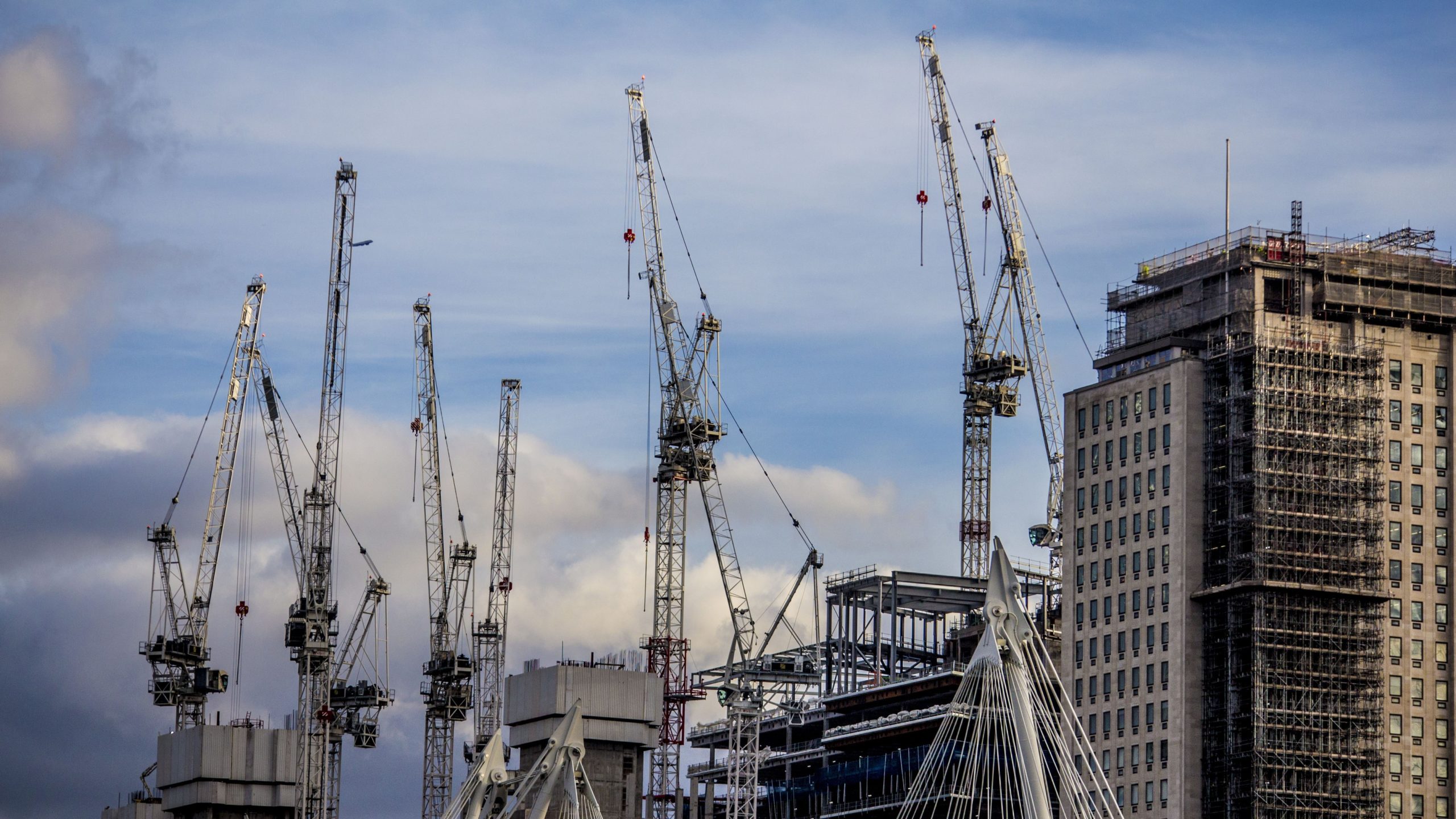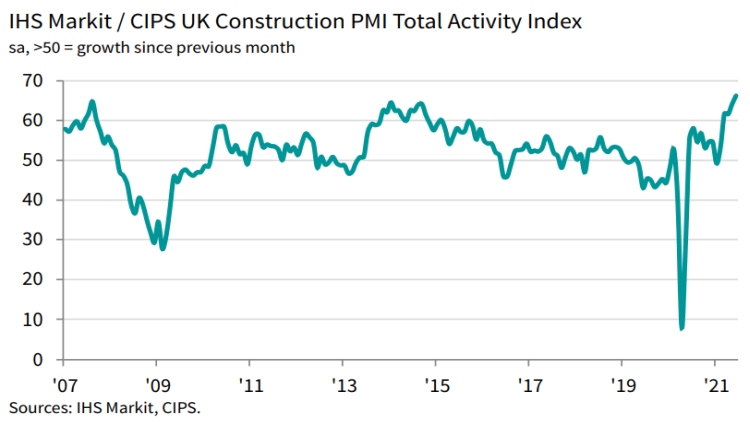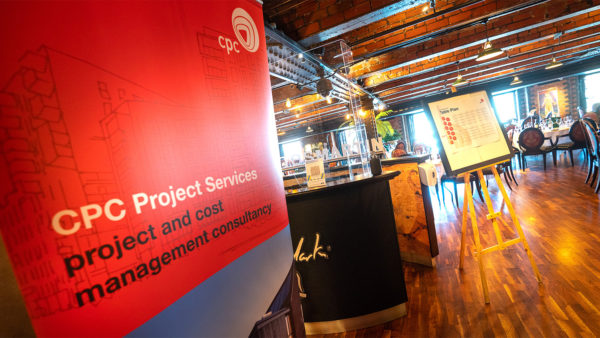
Construction activity surged to a 24-year high in June, according to construction buyers, after another sharp rise in new orders.
The IHS Markit/CIPS UK Construction PMI Total Activity Index registered a score of 66.3 last month (where 50 indicates no change), up from 64.2 in May. It was the highest score since June 1997, with sharp increases in activity across all three main areas of the construction sector.
However, the surging levels of activity have also led to severe shortages of some construction products and materials, the biggest lengthening in supplier delivery times since the survey began 24 years ago, rising prices and concerns over whether or not there are sufficient skills in the sector to cope with demand.
Construction work in the housebuilding category (68.2) increased at its fastest pace since November 2003. Commercial work was the second-best performing area (66.9), while civil engineering activity also increase (60.7).

Buyers reported a rapid turnaround in demand for new work, especially for residential building and commercial projects related to the reopening of the UK economy. Total orders have increased in each of the last 13 months.
The rate of job creation moderated since May but was running at around the fastest level seen over the past seven years, while subcontractor usage increased at its steepest pace since the survey began in April 1997.
Meanwhile, around 77% of the survey panel reported longer lead times among suppliers in June. Construction companies cited stock shortages among vendors, reflecting delays with shipping and haulage, especially for products shipped from the EU. Buyers reported particular shortages of cement, concrete, plaster, steel, timber and roof tiles. Average prices paid for products rose at record rates.
Nonetheless, construction firms remained optimistic about the prospects for growth over the next 12 months, although that was tempered by some concerns about labour availability and the sustainability of the recent surge in demand.
Tim Moore, economics director at IHS Markit, which compiles the survey, said: "June data signalled another rapid increase in UK construction output as housing, commercial and civil engineering activity all expanded at a brisk pace. The headline index signalled the fastest rise in business activity across the construction sector for 24 years. Total new orders expanded at one of the strongest rates since the summer of 2007, mostly reflecting robust demand for residential projects and a boost to commercial work from the reopening UK economy.
"Supply chains once again struggled to keep up with demand for construction products and materials, with lead times lengthening to the greatest extent since the survey began in April 1997. Survey respondents widely reported delays due to low stocks of building materials, shortages of transport capacity and long wait times for items sourced from abroad.
"Purchasing prices and subcontractor charges both increased at a survey-record pace in June, fuelled by supply shortages across the construction sector. Escalating cost pressures and concerns about labour availability appear to have constrained business optimism at some building firms. The degree of positive sentiment towards the year-ahead growth outlook remained high, but eased to its lowest since the start of 2021."
Eddie Tuttle, director of policy, external affairs & research at CIOB, said:
"Today’s figures indicate another sharp increase in UK construction output, with construction growth rising to its strongest levels in 24 years. We speculate that there has been a bumper period of work in the repair, maintenance and improvement sector as commercial offices, leisure and hospitality prepared for the loosening of covid-19 restrictions. However, the PMI rightly reports on the imbalance in demand and supply of construction products and materials. This is set to lead to further cost pressures for contractors during a time of financial uncertainty and potential delays to existing and new projects."
Jan Crosby, head of infrastructure, building and construction at KPMG UK, added: “New orders for work in the construction sector continue to boom this month as demand again surges for projects nationally and regionally.
“But the issues with delays in the global supply chain haven’t gone away, raw materials are still difficult to procure and costs are going up on what is available. These shortages and price rises are causing builds to be more expensive overall and making it difficult for the sector to plan for unexpected costs on projects.
“Opportunities are growing in hot markets such as data centres, logistics, residential and life sciences, while the infrastructure re-set will provide longer term opportunities including through freeports. Ultimately the materials and labour supply chains need time to rebalance – which they will – while also creating a catalyst for new ways of delivery and new entrants into the market.”









